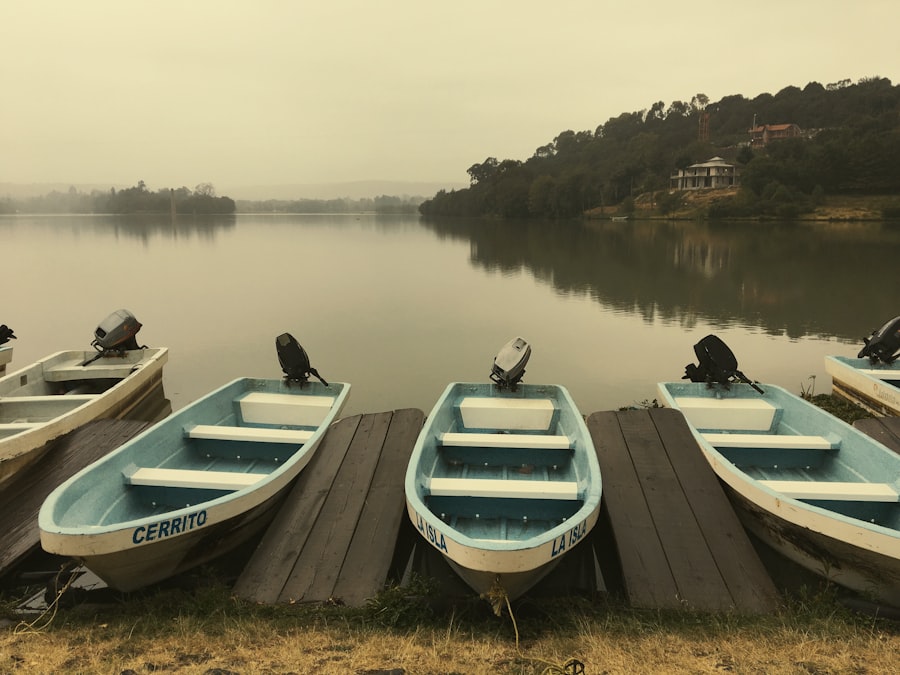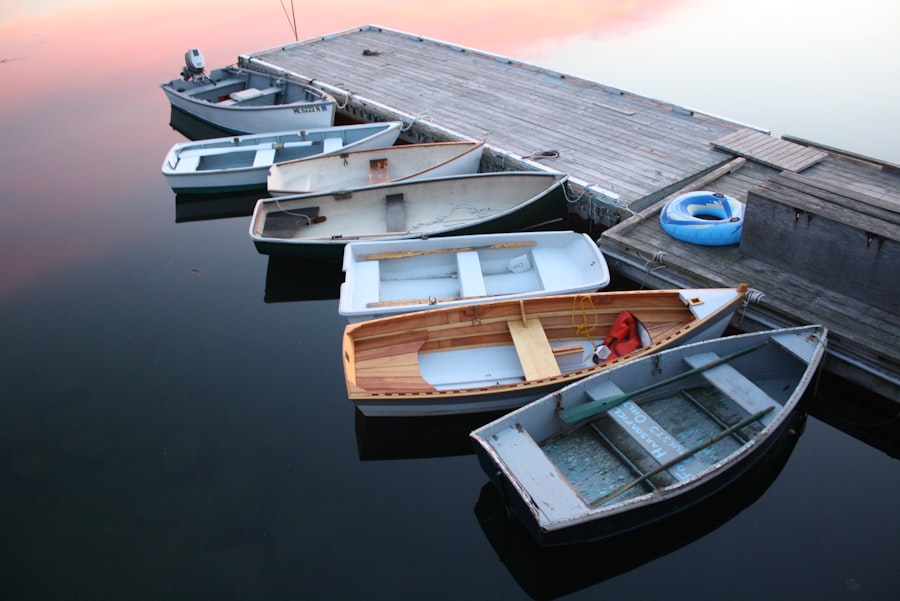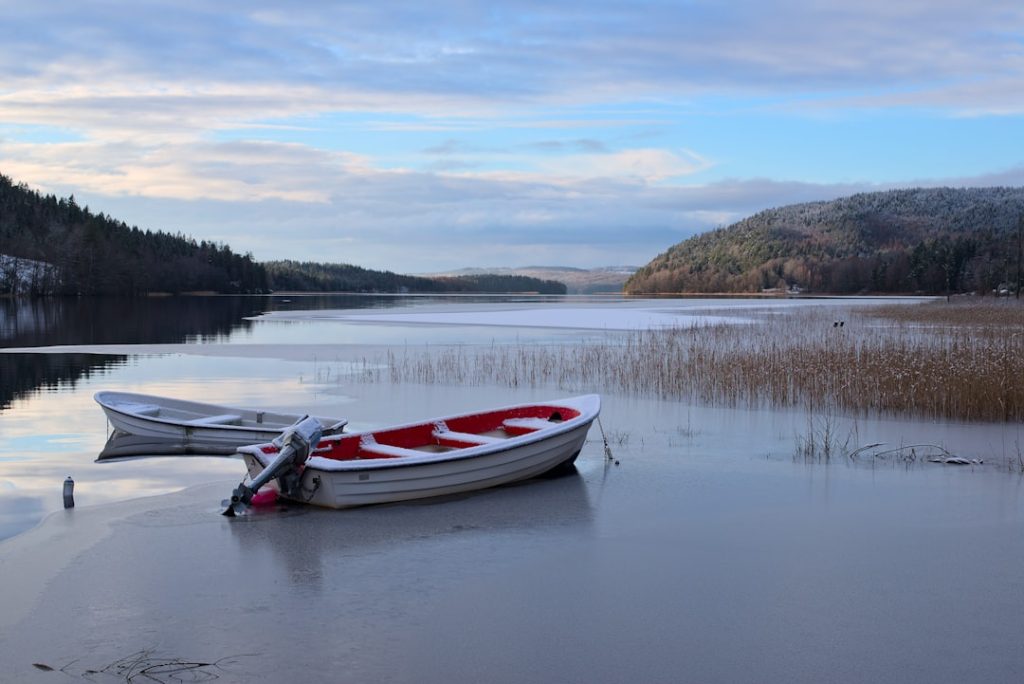Small boats offer a unique blend of accessibility, versatility, and affordability that appeals to a wide range of boating enthusiasts. One of the primary benefits of small boats is their ease of handling. Unlike larger vessels that often require specialized training and experience, small boats can be operated by individuals with minimal boating knowledge.
This makes them an excellent choice for beginners who are eager to explore the water without the intimidation that larger crafts can present. Additionally, small boats are typically lighter and more maneuverable, allowing for greater agility in various water conditions, whether it be calm lakes or gentle rivers. Another significant advantage of small boats is their cost-effectiveness.
The initial purchase price of a small boat is generally much lower than that of larger yachts or motorboats, making them accessible to a broader audience. Furthermore, the maintenance costs associated with small boats are often reduced due to their simpler systems and smaller size. Fuel efficiency is another factor; smaller boats usually consume less fuel, which not only saves money but also reduces environmental impact.
This combination of affordability and ease of use makes small boats an attractive option for families, casual boaters, and those looking to enjoy recreational activities on the water without breaking the bank.
Key Takeaways
- Small boats offer affordability, ease of use, and versatility for various water activities.
- There are diverse types of small boats, including kayaks, canoes, dinghies, and fishing boats.
- Important buying factors include size, purpose, budget, and storage options.
- Small boats can be found through dealerships, online marketplaces, and local classifieds.
- Regular maintenance and safety measures are essential for enjoyable and secure boating experiences.
Types of Small Boats Available
The market for small boats is diverse, catering to various interests and activities. One popular category is the inflatable boat, which is favored for its portability and ease of storage. Inflatable boats are ideal for those who may not have the space for a traditional boat or who want something lightweight that can be easily transported.
They are often used for fishing, leisure cruising, or as tenders for larger vessels. Their versatility makes them suitable for both calm waters and more adventurous outings. Another common type of small boat is the kayak, which has gained immense popularity in recent years.
Kayaks come in various styles, including sit-on-top and sit-inside designs, catering to different preferences and skill levels. They are particularly favored for their ability to navigate narrow waterways and their suitability for solo or tandem paddling. Canoes also fall into this category, offering a more traditional experience that emphasizes teamwork and connection with nature.
For those interested in sailing, small sailboats such as dinghies provide an excellent introduction to the sport, allowing sailors to learn the basics of wind navigation in a manageable size.
Factors to Consider When Buying a Small Boat

When considering the purchase of a small boat, several factors should be taken into account to ensure that the investment meets your needs and expectations. First and foremost is the intended use of the boat. Are you looking for something primarily for fishing, leisurely cruising, or perhaps water sports?
Understanding how you plan to use the boat will help narrow down your options significantly. For instance, if fishing is your primary goal, you might prioritize features such as rod holders, storage compartments for tackle, and stability in choppy waters. Another critical factor is the boat’s material and construction.
Small boats can be made from various materials, including fiberglass, aluminum, and wood. Each material has its advantages and disadvantages; fiberglass boats are often more durable and require less maintenance, while aluminum boats are lightweight and resistant to corrosion. Wood boats offer aesthetic appeal but may require more upkeep over time.
Additionally, consider the boat’s weight capacity and size in relation to how many people you plan to take on board regularly. Ensuring that the boat can accommodate your needs comfortably will enhance your overall experience on the water.
How to Find Small Boats for Sale
| Method | Description | Advantages | Considerations |
|---|---|---|---|
| Online Marketplaces | Websites like Boat Trader, Craigslist, and eBay Motors listing small boats for sale. | Wide selection, easy to compare prices, convenient search filters. | Verify seller credibility, beware of scams, inspect boat in person if possible. |
| Local Dealerships | Physical stores specializing in new and used small boats. | Professional advice, warranty options, ability to test boats. | May have higher prices, limited to local inventory. |
| Boat Shows | Events where multiple sellers showcase boats for sale. | Opportunity to see many boats in one place, special event discounts. | Limited to event dates, may pressure buyers to decide quickly. |
| Classified Ads | Newspapers and community bulletin boards listing boats for sale. | Local sellers, potential for good deals. | Less detailed listings, slower communication. |
| Boat Auctions | Public sales where boats are sold to highest bidder. | Potential for below-market prices. | Risk of limited inspection, competitive bidding. |
Finding small boats for sale can be an exciting yet overwhelming process due to the sheer number of options available. One effective approach is to start by exploring online marketplaces dedicated to boating enthusiasts. Websites such as Boat Trader, Craigslist, and eBay Motors often feature a wide range of listings from private sellers and dealers alike.
These platforms allow you to filter your search based on criteria such as price range, location, and type of boat, making it easier to find something that fits your specific needs. In addition to online resources, local boat shows and expos can be invaluable for discovering small boats for sale. These events often showcase a variety of manufacturers and models, providing an opportunity to see boats up close and even test them in water demonstrations.
Engaging with dealers at these shows can also yield insights into new models and upcoming sales. Furthermore, local marinas and boatyards frequently have bulletin boards with listings from individuals looking to sell their boats directly within the community.
Tips for Maintaining Your Small Boat
Proper maintenance is essential for ensuring the longevity and performance of your small boat. Regular cleaning should be a priority; saltwater exposure can lead to corrosion if not addressed promptly. After each outing, rinse the boat thoroughly with fresh water to remove salt and debris.
For fiberglass boats, applying a protective wax can help maintain the finish and prevent fading from UV exposure. Additionally, inspect the hull regularly for any signs of damage or wear that may require immediate attention. Another critical aspect of maintenance involves checking the mechanical systems of your boat.
This includes inspecting the engine (if applicable), battery connections, and fuel lines for any signs of wear or leaks. Regularly changing the oil and filters will help keep the engine running smoothly and efficiently. If your small boat has a trailer, don’t overlook its maintenance either; check tire pressure, lights, and brakes before embarking on any journey.
By staying proactive with maintenance tasks, you can avoid costly repairs down the line and ensure that your boating adventures remain enjoyable.
Safety Precautions for Small Boat Adventures

Safety should always be a top priority when embarking on any boating adventure, regardless of the size of your vessel. One fundamental precaution is ensuring that all passengers wear life jackets at all times while on board. Life jackets are designed to keep individuals afloat in case of an emergency, significantly increasing chances of survival in unexpected situations such as capsizing or falling overboard.
It’s essential to choose life jackets that are appropriate for each person’s weight and size. In addition to personal flotation devices, it’s crucial to equip your small boat with essential safety gear. This includes a first aid kit, fire extinguisher, flares or signaling devices, and a whistle or horn for communication purposes.
Familiarizing yourself with local boating regulations is also vital; many areas have specific requirements regarding safety equipment that must be onboard at all times. Before setting out on any trip, check weather conditions and be prepared for sudden changes in weather patterns that could affect your outing.
Popular Destinations for Small Boat Adventures
There are countless destinations around the world that cater specifically to small boat adventures, each offering unique experiences tailored to different interests. For instance, the Florida Keys are renowned for their crystal-clear waters and vibrant marine life, making them an ideal location for kayaking or paddleboarding among coral reefs teeming with fish. The calm waters around these islands provide an excellent environment for both novice and experienced boaters alike.
Another popular destination is Lake Tahoe in California and Nevada, known for its stunning scenery and recreational opportunities. The lake’s clear blue waters are perfect for sailing or fishing while surrounded by breathtaking mountain views. Additionally, many coastal towns along the Pacific Northwest offer sheltered bays ideal for small boat exploration; places like Puget Sound provide opportunities to see wildlife such as seals and otters while enjoying serene paddling experiences.
Joining Small Boat Communities and Clubs
Becoming part of a small boat community or club can greatly enhance your boating experience by providing opportunities for social interaction, shared knowledge, and organized events. Many local clubs offer regular meet-ups where members can share tips on maintenance, discuss favorite destinations, or even participate in group outings on the water. These gatherings foster camaraderie among fellow boating enthusiasts who share similar interests.
Additionally, joining a club often grants access to resources such as workshops on safety training or navigation skills that can improve your boating proficiency. Many clubs also organize races or regattas specifically designed for smaller vessels, allowing members to test their skills in a friendly competitive environment while building lasting friendships within the community. Engaging with others who share your passion not only enriches your boating experience but also creates lasting memories on the water.


